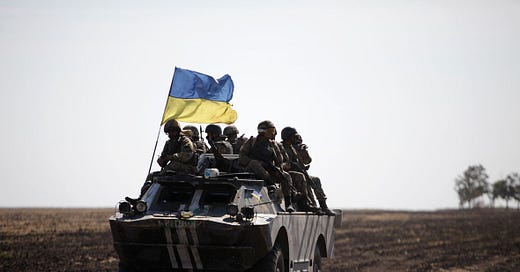For the past eight months, Western leaders have emphasised that Russia’s invasion of Ukraine is war against democracy, and by supporting Ukraine we are defending that form of government and the values it represents.
In a speech on 26 March calling for America’s allies to stand with Ukraine, President Biden referred to the “great battle for freedom: a battle between democracy and autocracy”. He went to say that “in the perennial struggle for democracy and freedom, Ukraine and its people are on the frontlines”, adding that “their brave resistance is part of a larger fight for essential democratic principles”.
The EU Comission President Ursula von der Leyen characterised Russia’s invasion as a “war on our values” that is about “autocracy against democracy”. And two prime ministers ago, Boris Johnson argued the financial cost of supporting Ukraine is a “price worth paying for democracy and freedom”.
Fine words, but there’s one big problem: Ukraine isn’t particularly democratic. (Stephen Wertheim has already made this point in The Atlantic, but it bears repeating.) Two months before his “great battle for freedom” speech, Biden himself stated that Ukraine was unlikely to join NATO in the near future “based on much more work they have to do in terms of democracy”.
So on the one hand, we can’t let Ukraine into NATO because they’re not a democracy. But on the other, we can’t make concessions to Russia to end the war because this is a war against democracy!




